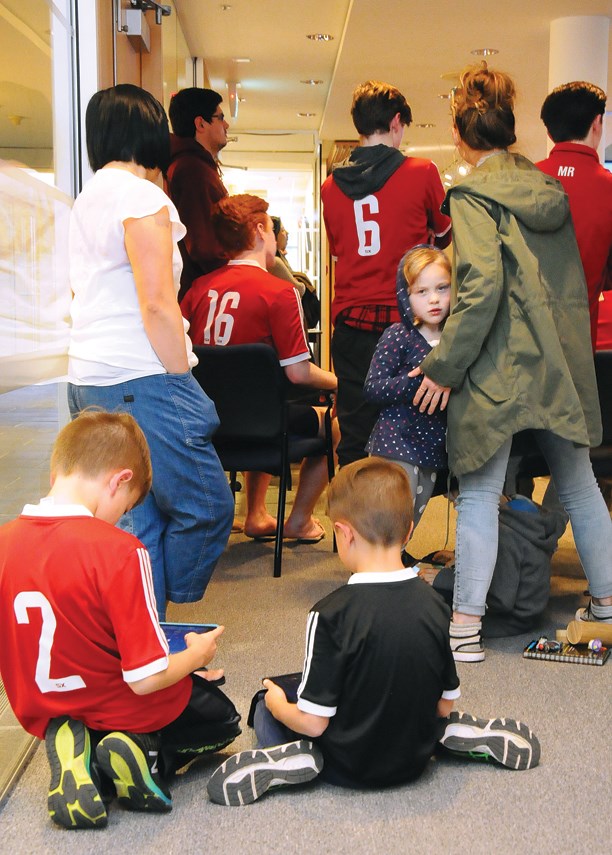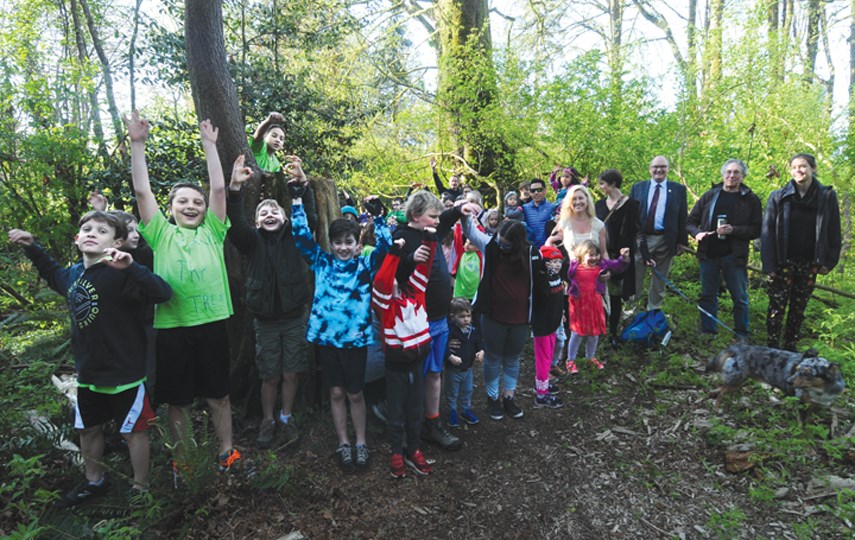Trees topped turf Monday as District of North Vancouver council voted 6-1 to preserve Digger Park and kick a proposed soccer field down the road.
The $3.8-million pitch proposal would have put a second artificial turf field near the southern end of Inter River Park. However, chopping 130 trees to make room for that field was a deal breaker for Coun. Jim Hanson.
“It is the most beautiful forest . . . that my eyes have ever beheld,” he said.
While approximately 231 trees would have been retained, Hanson argued Inter River Park would be: “substantially altered and denigrated.”
The field proposal has been wrongly presented as a choice between trees and a soccer field, according to Coun. Roger Bassam.
“The reality is: it can be both, and it should be both,” he said. “The two-field option . . . represents the best of all worlds.”
Bassam emphasized a district-commissioned report that assessed 27 per cent of the park’s trees as being in: “poor, dying, or dead states of health.”
While a scarcity of flat land has left sports fields in short supply, the district is rich in green space, Bassam said.
“It’s not a big ask,” he said.
With plans to decommission Seylynn and Norseman fields, the Inter River project would be a boon for: “a huge community-based organization that is desperately looking for a home,” said a visibly frustrated Bassam.
Less decisive was Coun. Robin Hicks, who noted the importance of sports as well as the career-ending injuries he’s witnessed on artificial turf.
“I don’t even know at this moment which way I’m going to vote,” he said, moments before rejecting the field proposal.
The decision was binary, Coun. Mathew Bond said.
“Either we build this field and tear down the forest or we don’t,” he said.
Ultimately, the long-term benefits of an accessible park outweigh the potential for year-round tournaments, Bond decided.
Speaking to council by phone, Coun. Doug MacKay-Dunn also cited the importance of preserving the park.
“Once gone, it will never be replaced.”
Several councillors said they would support a field elsewhere but were unwilling to take away a park that does double duty as a highway noise buffer.
“We don’t need to say no to an artificial turf field and a tournament facility, we just need to say no to it here,” Coun. Lisa Muri said.
Muri called for an amalgamated North Vancouver to examine the prospect of tournament fields at Confederation Park.
While Mayor Richard Walton joined the majority of council in voting against the field, he refuted the notion that another site could be found.
“There is no other tournament site on the North Shore, other than this,” he said. “Another site is not going to come up.”
Walton also noted that the North Shore’s population would be much lower: “if the entire community hadn’t been logged several times.”
Walton concluded by calling on his colleagues to work with the community on a detailed Lower Lynn community plan that would define the boundaries around green spaces.
Soccer players and park proponents packed council chambers, with each side making impassioned speeches to council prior to the decision.

“In this day and age, children don’t venture into forests to meet and recreate with friends, they meet at fields and play there,” said John O’Flynn, director of club operations for North Vancouver Football Club.
O’Flynn called on council to: “Cut down the screen time of our kids. ... Cut down local commuting traffic between the district and the city,” and to, “Cut down the time kids play on gravel.”
While she’s seen a couple bloody knees incurred during gravel field soccer games, neighbour and parent Jen Meilleur stressed the importance of the park.
“Organized sport is important, but sport development should never be done at the expense of our natural areas,” she said, touting the value of unstructured play and a connection to the natural world.
“We have many developments on the roster and we’re also being squeezed by the highway inter-change, so these urban forests are becoming more and more important.”



